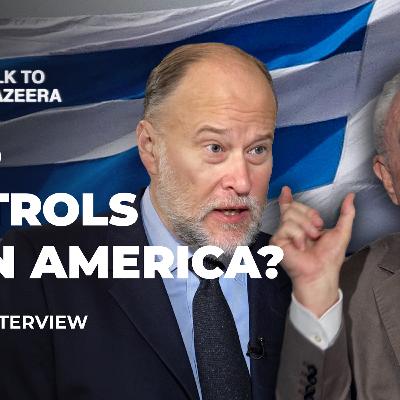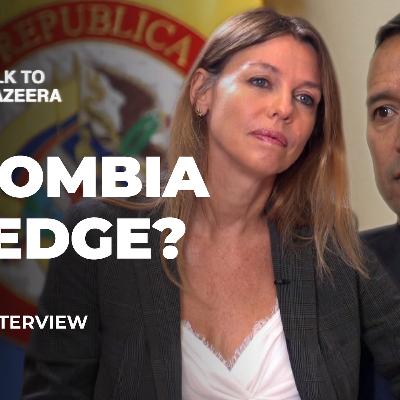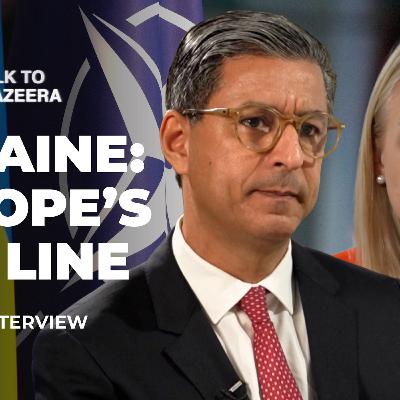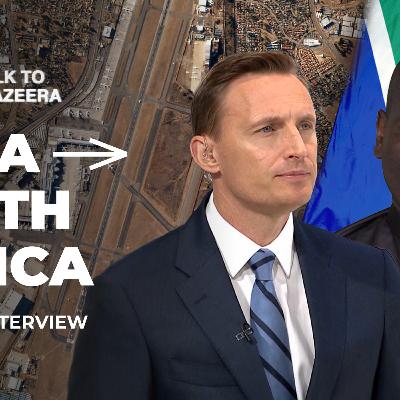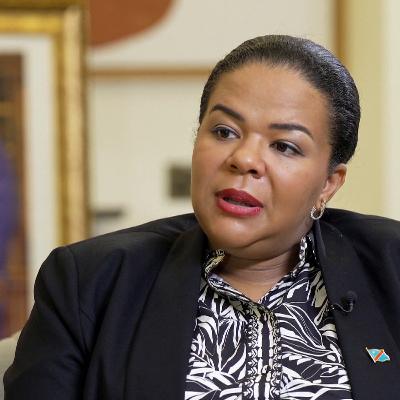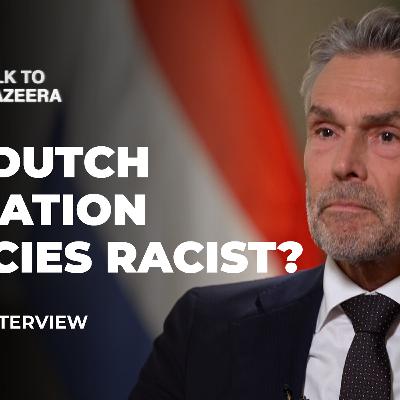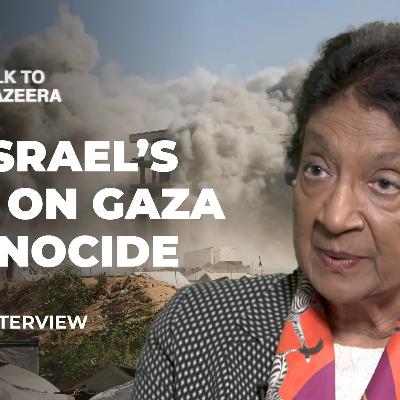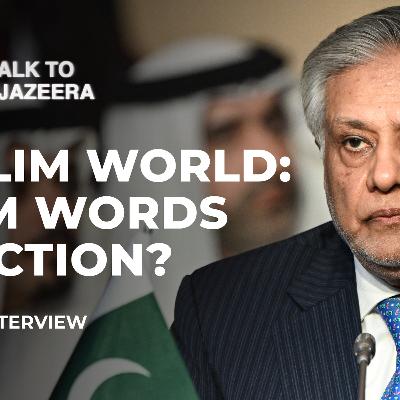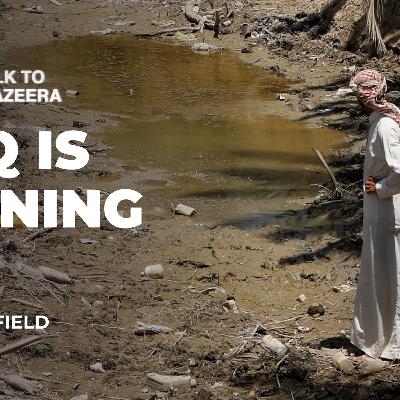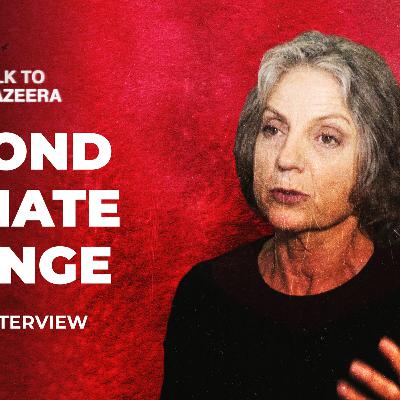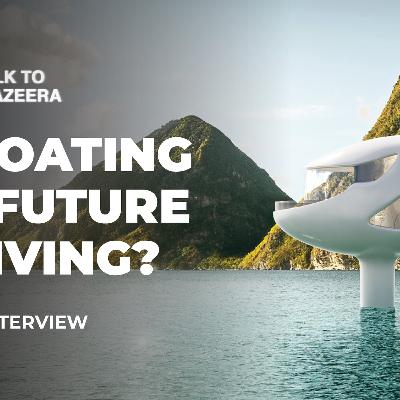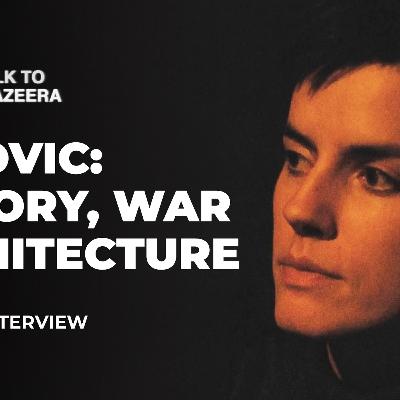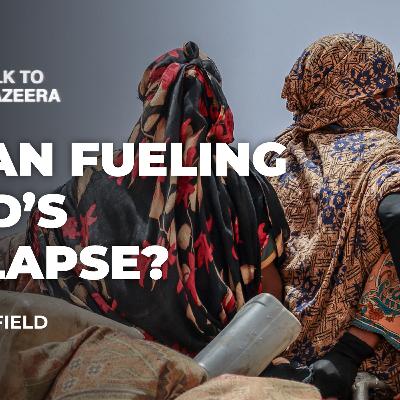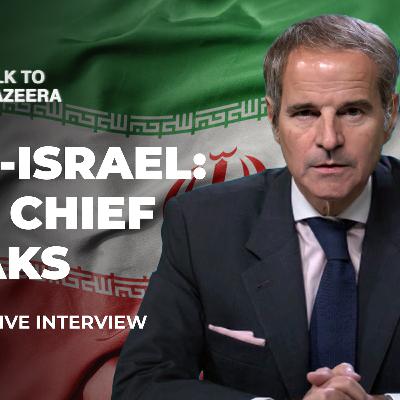Discover Talk to Al Jazeera
Talk to Al Jazeera

192 Episodes
Reverse
The United States is reviving a policy first set out in the 1800s that treats Latin America as its strategic sphere of influence. As Washington expands maritime operations in the Caribbean and eastern Pacific, critics warn of legal violations and rising regional instability. Uruguay’s Foreign Minister Mario Lubetkin joins Talk to Al Jazeera to discuss US strikes, Venezuela, migration pressures, and China’s growing role in the region — and whether diplomacy can still prevent escalation in a hemisphere shaped once again by power politics.
Colombia’s Defence Minister Pedro Sanchez speaks to Talk to Al Jazeera as tensions between the United States and Venezuela escalate. With Washington deploying additional military assets to the Caribbean, Colombia finds itself on the front line of a widening regional standoff. Sanchez discusses the pressure this places on President Gustavo Petro’s “Total Peace” strategy, the surge in armed groups, and the country’s fight against drug trafficking. He warns that any further confrontation could trigger new migration flows, empower criminal networks, and jeopardise Colombia’s fragile security gains.
Finland’s Foreign Minister Elina Valtonen speaks to Talk to Al Jazeera about the prospects for a Russia-Ukraine peace deal, whether Trump can bring Putin and Zelenskyy to the negotiating table, and why Europe insists on clear red lines. From frozen Russian assets to NATO deterrence and Finland’s unique position as a NATO member sharing a long border with Russia, Valtonen explains what a realistic settlement would require, and why she believes Moscow is still not interested in genuine peace.
South Africa’s foreign minister Ronald Lamola speaks to Talk to Al Jazeera about the mysterious arrival of a flight carrying Palestinians, why authorities were blindsided, and what the incident reveals about the networks moving people out of Gaza. He also discusses South Africa’s genocide case against Israel at the International Court of Justice, the country’s G20 summit, and how Pretoria sees its role in a rapidly shifting global order shaped by conflict, diplomatic pressure and competing visions of justice.
The Democratic Republic of the Congo’s foreign minister tells Al Jazeera that Rwanda’s actions on the ground cast doubt on its commitment to a peace process aimed at ending decades of conflict in eastern Congo. Therese Kayikwamba Wagner says a planned presidential meeting remains stalled, with foreign troops still on Congolese territory and abuses continuing despite diplomatic efforts. She argues that meaningful progress depends on real leverage from international facilitators, the United States, Qatar and regional partners, to hold both sides accountable and push the process toward a credible, lasting agreement.
For the first time since Russia’s full-scale invasion of Ukraine, a NATO member has formally invoked Article 4 of the alliance's founding treaty after a major airspace breach. Estonian Foreign Minister Margus Tsahkna tells Talk to Al Jazeera why repeated Russian provocations are more than isolated incidents - they’re a test of NATO’s credibility. As United States President Donald Trump questions the value of collective defence, Tsahkna warns that Europe’s security consensus is fraying and hesitation could invite danger.
Maria Corina Machado, Venezuela's opposition leader and now Nobel Peace Prize laureate, speaks from hiding about the cost of resistance and the hope driving millions demanding democracy. Barred from elections and under threat of arrest, she discusses the country's deepening crisis, where nearly eight million Venezuelans have fled, and the challenge of confronting a system that has survived sanctions, protests, and global isolation. In this in-depth interview, Machado reflects on her fight for democracy.
In a shifting world order, New Zealand's foreign policy faces new tests, from Gaza to the Pacific. Foreign Minister Winston Peters speaks to Talk to Al Jazeera about why his government has stopped short of recognising a Palestinian state, how small nations can stay neutral amid the United States-China rivalry, and whether multilateralism still protects the weak from the will of the powerful.
As Syria turns the page after Bashar al-Assad's fall, the transitional government promises justice, truth, and rule of law. In his first interview since taking office, Justice Minister Mazhar al-Wais tells Talk to Al Jazeera how his ministry preserved the regime's court archives from destruction and plans to prosecute crimes from the war years. But critics say the process is too narrow, focused only on Assad-era abuses, while violence and sectarian reprisals create new victims still awaiting accountability. Can post-war Syria deliver real justice?
Dutch Prime Minister Dick Schoof joins Talk to Al Jazeera at a pivotal moment for Europe and the Middle East. After his coalition collapsed, he reflects on leading the Netherlands through crises at home and abroad. From the war in Gaza and sanctions on Israel to NATO, migration and United States President Donald Trump’s stance on Ukraine, Schoof gives rare insight into how the Netherlands navigates global fault lines. A politically unaffiliated leader and former intelligence chief, he speaks candidly about power, justice and Europe’s future.
Nearly two years into Israel’s war on Gaza, a United Nations fact-finding mission has delivered its most damning verdict yet: genocide. Navi Pillay, chairwoman of the UN Independent International Commission of Inquiry on the Occupied Palestinian Territory, says Israeli leaders’ statements and the destruction on the ground prove intent. Speaking to Hashem Ahelbarra in Geneva, she explains the commission’s findings, what legal consequences Israel could face and what must happen next. As famine sets in and civilian casualties mount, Pillay outlines why this report could mark a turning point in international accountability - and whether the UN will be able to act on its own conclusions.
In the wake of Israel's unprecedented strike on Qatari soil, Muslim leaders are weighing their response. Pakistan, the Islamic world's only nuclear power, warns that words alone will not deter further aggression. Deputy Prime Minister and Foreign Minister Mohammad Ishaq Dar tells Talk to Al Jazeera that Pakistan, as part of the Ummah or global community of Muslim believers, "will discharge its duty". He discusses whether the Islamic bloc can deliver legal, financial, or diplomatic consequences, and how far Islamabad is prepared to go.
Iraq, once known as Mesopotamia, the “Land of the Two Rivers”, is facing its worst water crisis in living memory. The Tigris and Euphrates — lifelines of agriculture and civilisation for millennia — are running dry. Climate change, upstream dams and decades of mismanagement have turned fertile land into dust, forcing families from their homes and threatening national stability. Talk to Al Jazeera travels to southern Iraq to hear from farmers, environmentalists and officials about a crisis that could decide the country’s future.
Sandra Myrna Diaz, one of the world’s most influential ecologists, argues that humanity is missing the bigger picture. While climate change dominates headlines, she warns the deeper crisis is biodiversity collapse, the unravelling of the living web of plants, animals, soil and water that sustains life. In this Talk to Al Jazeera interview, Diaz criticises governments for failing to meet biodiversity targets and calls for a rethinking of consumerism-driven lifestyles. Her message: The survival of civilisation depends not just on curbing greenhouse gas emissions but also on protecting the fabric of life itself.
As climate change pushes sea levels higher, Dutch architect Koen Olthuis says the answer isn’t higher dikes - it’s floating cities. From luxury homes in the Netherlands to sustainable floating schools in slums and entire island communities in the Maldives, his vision blends architecture and adaptation. But can floating design truly offer an inclusive solution - or will only the wealthy stay dry? In this episode of Talk to Al Jazeera, Olthuis explains why living on water may be the only way forward.
How do we remember war, and who gets remembered? In this episode of Talk to Al Jazeera, Step Vaessen speaks to Sabina Tanovic, a Sarajevo-born expert in memorial architecture. From the genocide in Srebrenica to the destruction in Gaza, Tanovic explores how monuments shape justice, history, and collective healing.
As Sudan’s war effects spill into Chad, the country faces the world’s most underfunded refugee crisis. Nearly a million Sudanese, mostly women and children, have fled, but aid is vanishing, disease is looming, and the system is on the verge of collapse. In this episode of Talk to Al Jazeera, Ahmed Idris speaks to a United Nations lead official in Chad and to a Sudanese refugee activist who fled the same forces now threatening his people. As the world looks away, they warn that the cost of inaction may soon be counted in lives.
As Israel bombs Iranian nuclear sites under International Atomic Energy Agency (IAEA) inspection, questions mount over nuclear double standards and the credibility of the global system. Iran accuses the IAEA of bias and complicity, while Israel - an undeclared nuclear power - remains outside treaty obligations. IAEA Director General Rafael Grossi responds to allegations, addresses fears of a nuclear arms race and warns of the consequences if diplomacy fails. Is the non-proliferation regime collapsing? Rafael Grossi, director general of the International Atomic Energy Agency, talks to Al Jazeera.
Greek Foreign Minister Giorgos Gerapetritis emphasises his country's robust defence ties with Israel amid its war on Gaza. He asserts now is not the time to revisit their largest defence deal, including a $1.6bn contract for Greek air force training.Gerapetritis highlights Greece’s peace efforts in the Middle East and stresses the importance of high defence spending due to geopolitical dynamics and Greece’s extensive Mediterranean coastline.The Greek foreign minister, Giorgos Gerapetritis, talks to Al Jazeera.
More than 200 days into Israel’s war on Gaza, the death toll has surpassed 34,000 while more than 77,000 Palestinians have been wounded.Amid the destruction and ongoing violence, the United Nations appointed Sigrid Kaag as its senior humanitarian and reconstruction coordinator for Gaza. With her experience navigating the European Union’s varied positions on the conflict, Kaag leads crucial relief efforts.As the world waits for a ceasefire and an end to the violence, the question arises: "What will ‘the day after’ look like for Gaza, once the war is over?"Sigrid Kaag, UN senior humanitarian and reconstruction coordinator for Gaza, talks to Al Jazeera.


